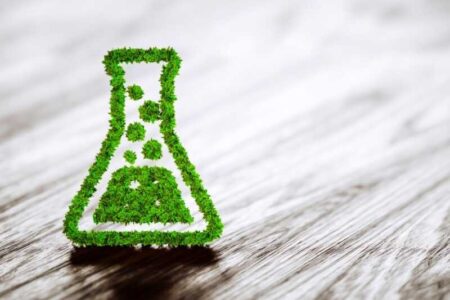National sustainability test

This September is the month when we will see a pilot scheme to assess the environmental impact of food, with a new eco label to appear on the front of packaging.
Global food giants and a group of Europe’s leading supermarkets are teaming up with top food and environmental scientists to form a non-profit organisation.
Foundation Earth is the brainchild of Denis Lynn, the Northern Irish food entrepreneur who tragically died in May 2021 following a freak quadbike accident. The aim is to help consumers compare food products for sustainability and push manufacturers to look for more environmentally friendly ways to produce food.
Product scores are based on factors such as carbon emissions and water usage during production.
Is this the right approach? Well, the supermarkets and manufacturers believe so.
M&S, Sainsbury’s and the Co-op join Nestlé, protein giant Tyson Foods and Spanish supermarket Eroski on the Foundation’s industry advisory group, each signing up to “explore the potential for environmental labelling on food products and to support Foundation Earth’s ambition to help build a more sustainable food industry.”
Nestlé is supporting an intensive nine-month development programme to prepare the Foundation for full Europe-wide roll out in 2022.
Can we take from this that everyone is on the same page?
The UN’s intergovernmental panel certainly puts the onus on food and beverage companies to think that way.
It has warned the food industry that it already contributes up to 37 per cent of global greenhouse gases and that, without intervention, these are likely to increase by another 30 per cent by 2050, due to increasing demand from population growth.
Foundation Earth has brought together two systems for measuring the environmental impact of an individual food product and communicating the information to consumers via a front-of-pack score.
The Foundation’s pilot launch will use a traffic-light style system inspired by work from Oxford University researchers and developed by life cycle assessors at Mondra.
The pilot will run in parallel to an intensive nine-month development programme that will combine the Mondra method with a system devised by an EU-funded consortium of Belgium’s Leuven University and Spanish research agency AZTI. The Mondra and EIT Food systems both allow two products of the same type to be compared on their individual merits via a complete product life cycle analysis, as opposed to simply using secondary data to estimate the environmental impact of an entire product group.
Experts say this method of individual assessment using primary data is crucial to encourage sustainable innovation in the international food supply chain.
The Foundation Earth R&D programme will produce an optimum and fully automated system for use across the UK and EU by autumn 2022.
The launch is welcome and has the potential to address the challenges of sustainability and climate change.
There’s no hiding from the fact that people want information to make more sustainable buying choices, and clearer labelling on carbon and environmental credentials is the right thing to do.
It is a positive move. The system will probably undergo refinement with product definitions a possible bone of contention as well as more facts and knowledge being taken onboard over the course of the development period.
We will also need to look closely at the economic impact of production of popular foods that may not sit well with their sustainability credentials.
How will consumers react to the labels? Surveys have indicated that consumers said they would change their purchasing behaviour if it helped reduce negative environmental impacts. This is a chance for carbon labels to empower consumers to make more informed choices and push companies to reduce their products’ carbon footprints – if the data is right, accurately estimating carbon footprints isn’t complicated and there are appropriate guidelines.
- Rodney Jack, editor, Food & Drink Technology.
Keep in touch via email: rodney@bellpublishing.com
Twitter: @foodanddrinktec or LinkedIn: Food & Drink Technology magazine.



